Sonnet 155 is a handbag made from discarded fruit peels, that dissolves in water and can be used as a fertilizer for plants.
Sonnet 155 created by Berlin design students Lobke Beckfeld and Johanna Hehemeyer-Cürten, is the upgrade to the ordinary paper bag. It comes in a wide range of colours inspired by the end of summer, the feeling of sun on the skin, exhilarant waters and a gentle wind. Each bag is a one of a kind piece, unique in its gradient pattern, subtly varying textures and vivid pastel colours, which derive from natural pigments.
Sonnet 155 is made from a composite of two raw materials: cellulosic production waste from the textile industry and pectin, a plant-based polysaccharide extracted from skin leftovers that are a by-product from juice production. Both materials can be sourced locally and – in combination – bring forth a sustainable material innovation fully integrated in a biological life cycle.
The composite has the visual and haptic appearance of a translucent leather with the advantage of eventually biodegrading in water or soil. In this way, the bag can be worn, used and loved until it starts to dissolve.
The design of the bag follows a minimalist approach to enhance its texture and translucence. Thus, the elegant shape transforms the material into a desirable product, which represents sustainability as a treat rather than a burden.
source johanna-hehemeyer

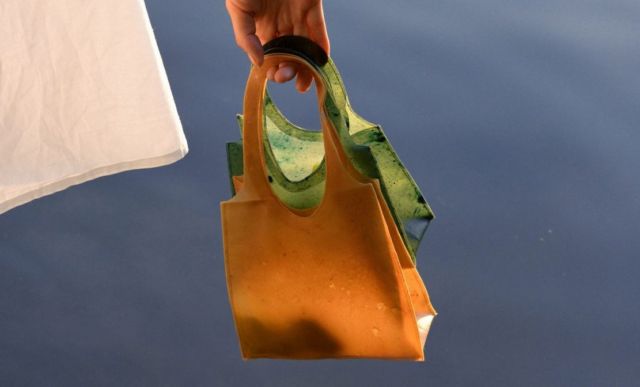
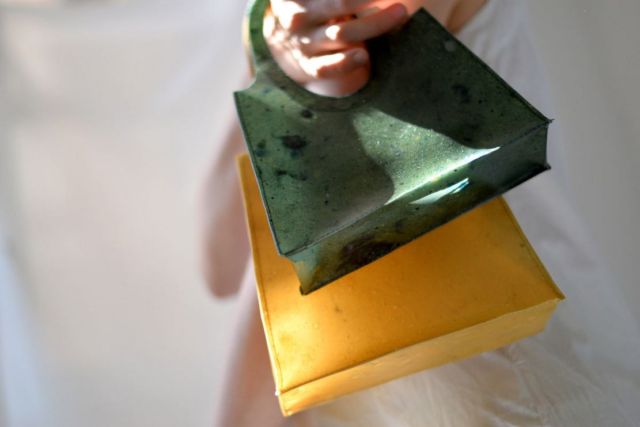
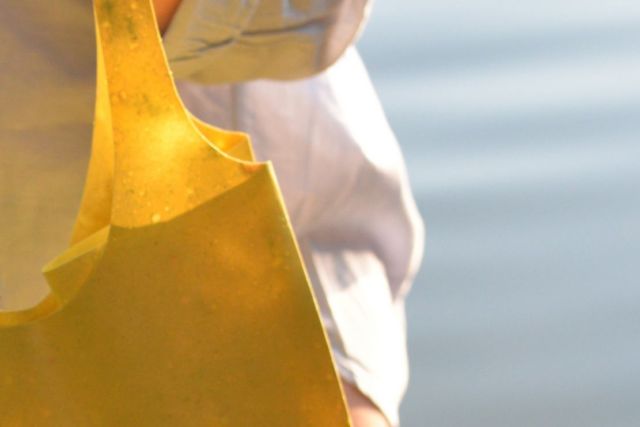
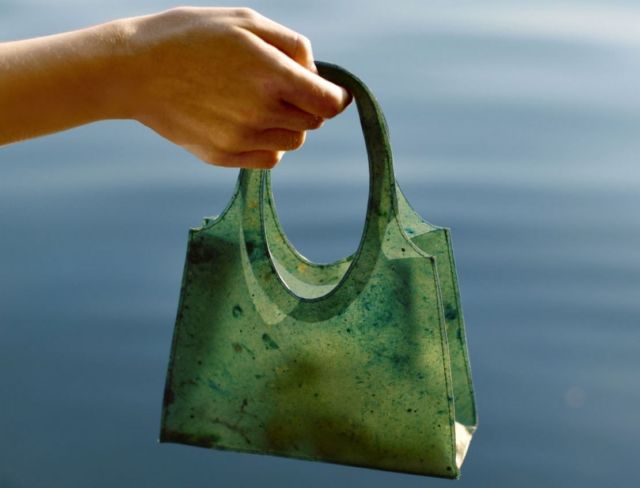
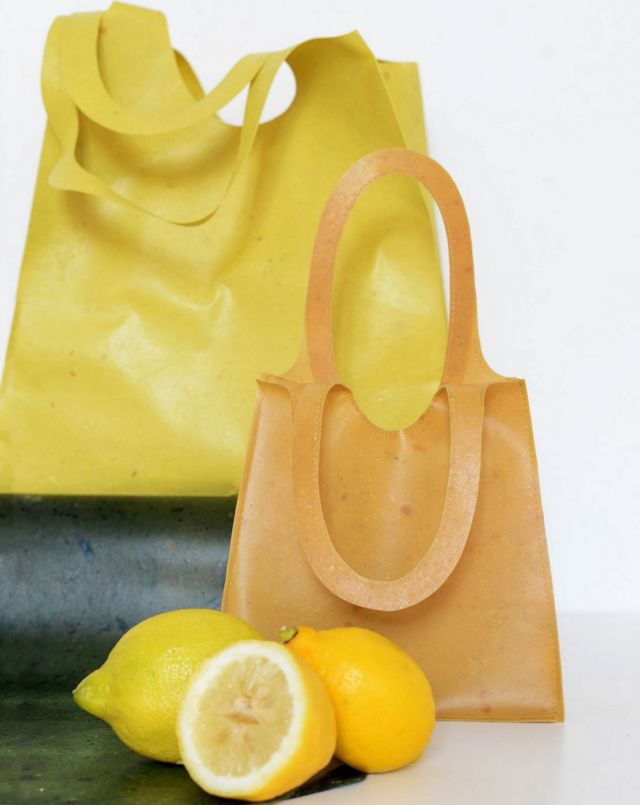
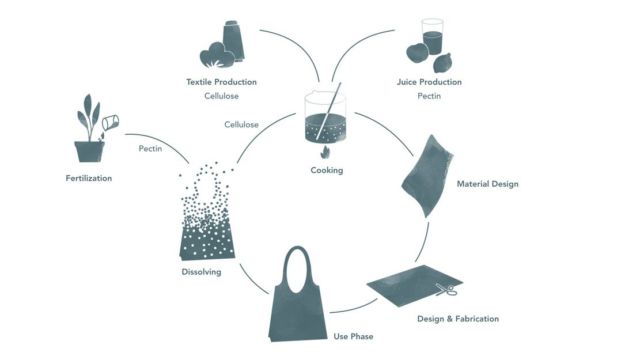




Leave A Comment